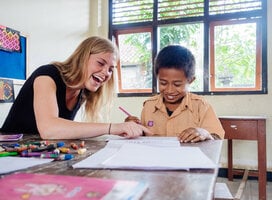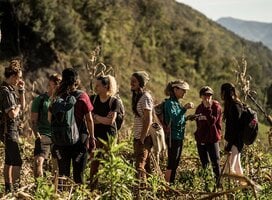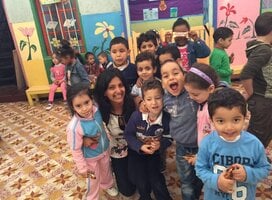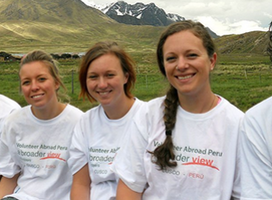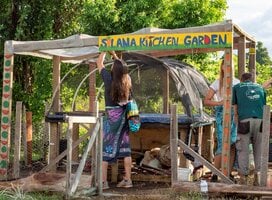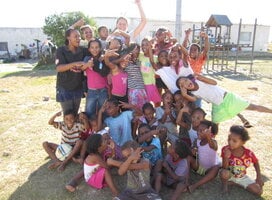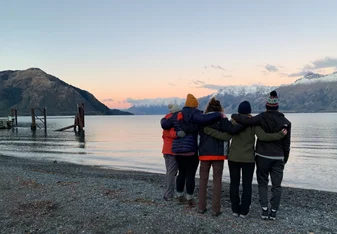Volunteer in Health Education Abroad
Achieving health and well-being for all has been a mandate of global organizations for decades. Health is a core human right, the prerequisite for people around the globe to conduct their work, engage in play, and achieve the quality of life that they desire. Now, more than ever, health is dynamic and complex. Health issues are no longer confined to borders and health educators play a critical role in shaping global health outcomes.
Volunteering in health education is a worthwhile pursuit. From physical health to sexual health, mental health, and spiritual health, volunteers play a vital role in filling shortages in low-resource countries. They can even choose to make a difference in their home country.
Wherever you choose, passionate health educators can inform, teach, and positively influence the lives of others and play an important role in any society.
Medical Trip Volunteer
Volunteers can work alongside healthcare practitioners in the community to assist in minor diagnosis and assessments. Performing duties like door-to-door house visits can prove vital in the maintenance of a community's overall health.
Peer Health Educator
Some organizations have a need for peer health educators (PHEs) who are responsible for developing and delivering the health curriculum in local schools and community settings. From general health knowledge to basic hygiene practices, volunteers are needed in rural communities where both resources and educators are lacking.
Maternal & Reproductive Health Volunteer
Women and girls worldwide continue to face poor health outcomes due to limited access to adequate medical services and knowledge as well as poverty and stigma around reproductive health. Volunteers looking to work in the area of reproductive health will find themselves adhering to the teachings and understandings of health, gender, and reproductive rituals particular to that culture.
Health & Nutrition Intern
Adequate nutrition plays a significant role in achieving and maintaining good health. Volunteers in health education can offer workshops on making healthy choices when adequate food is available. Depending on the country, volunteers might also offer workshops focused on understanding basic nutrition and making the best choices given scarce food supplies.
Public Health Volunteer
There are lots of programs where volunteers can work with community healthcare workers to implement important public health initiatives. Providing preventative dental and eye screenings or distributing home ventilation systems and mosquito nets are all initiatives that shape the long-term health of a community.
Volunteering in health education can take you all over the world. There are many countries with diverse geographical, political, cultural, and societal norms -- and all of these influences play a role in shaping the health landscape for volunteers to work in.
Ghana
This West African nation is a great place for health education volunteers to develop their skills. With many opportunities in clinics, medical facilities, and teaching hospitals, Ghana continues to provide volunteers with valuable experiences and opportunities in health education.
Tanzania
Working in Tanzania offers volunteers interested in health education a different perspective than that of Ghana in West Africa. Tanzania’s health landscape reflects the relationship between poverty, malnutrition, and poor health outcomes particularly in the region of East Africa.
Nicaragua
Located in the heart of Central America, Nicaragua is a land of volcanoes, lush jungles, and oceans on both sides. The tropical climate of Nicaragua combined with varying levels of poverty make the country focused on communicable diseases such as malaria, tuberculosis, and HIV/AIDS.
Peru
Peru is a geographically diverse country and its citizens have a broad range of health and wellness challenges. Generally, medical facilities in rural areas are understaffed and underfunded. Volunteers in a health education capacity can expect their initiatives to supplement the existing services and strengthen health care initiatives.
Philippines
The Philippines is a great destination for those looking to tackle complex challenges as a volunteer in health education. You’ll find a rich traditionalist way of life that is crossing with a globalizing world. As such, the health problems in the Philippines are a mix of infectious diseases and lifestyle-related health ailments such as heart disease, diabetes, and hypertension.
Planning a trip that is focussed on providing health education in various capacities is an exciting endeavor. With so many diverse organizations and regions of the world that have vastly different health outcomes, no two trips will ever be alike!
How to Choose a Health Education Volunteer Program
One of the first things you should consider as a volunteer in health education is what area of health interests you the most. Seek out organizations that align with your interests like maternal health or rural community health. There are lots of different ways you can engage with community members of all ages.
You should consider organizations with a well-structured delivery of their programs and services when choosing where to go overseas. Is the organization working within the community structure of health delivery or are they creating a whole new health system on their own? These types of aid have different impacts on a given community’s health outcomes.
